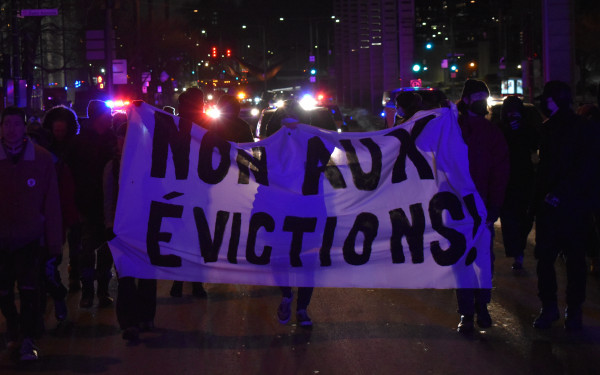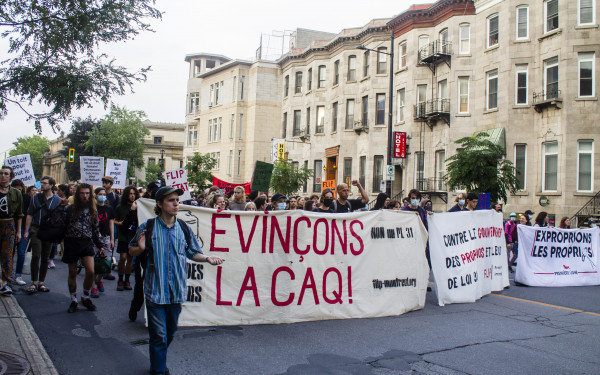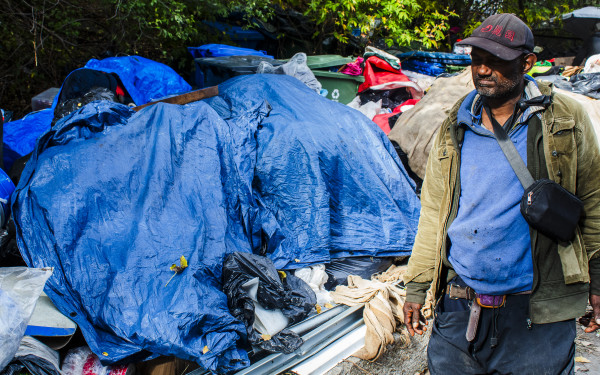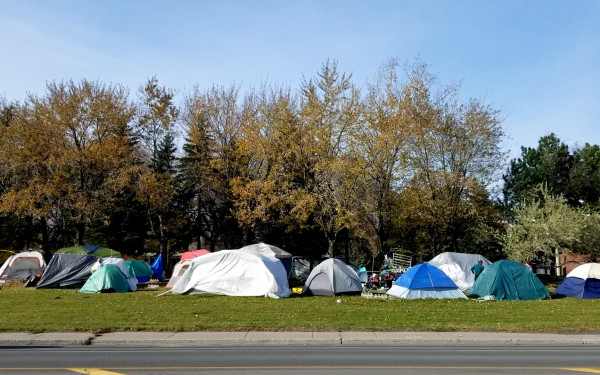The key is social housing
Thousands participated in a weekend-long protest for more substantial housing rights in Quebec.
The Front d’action populaire en réaménagement urbain (FRAPRU) organized a two-day series of events from Sept. 14 to 15 calling for the Quebec government to address the ongoing housing crisis by increasing social and community housing within the province.
FRAPRU aims to advocate for the right to housing, focusing specifically on funding for social housing projects and the regulation of the private housing market. The demonstrations are part of the organization’s “La clé, c’est le logement social” campaign.
The protest began on the evening of Sept. 14 with an encampment in Quebec City. Protesters had intended to camp at Parc de l'Amérique-Française before police threatened them with arrest despite the FRAPRU stating they had been in discussion with the city regarding the encampment.
“[The police officers] were quite aggressive in letting us know that if we dared to put up one tent that they would seize it, fine us, [and] arrest us,” said Citizen Action Committee of Verdun (CACV) representative Kay Lockyer.
The group relocated to the grounds of the National Assembly after police endorsed the move. At the parliament, the Sûreté du Québec had already set up barricades, threatening protesters with arrest should they attempt to sleep on the premises.
Around 60 people slept on the ground in front of the National Assembly, with some symbolically putting up tents. The group was surrounded by police presence, including several large police vans. Protesters reported unease with the heavy surveillance by the police, but no arrests were made during the demonstration.

Catherine Lussier, a coordinator at FRAPRU, says that this police interference is indicative of the larger sentiment of the government’s lack of willingness to hear the concerns of citizens. “It feels like they don’t want to hear the message,” said Lussier. “That’s why we pushed back and we are still here.”
On Sept. 15, housing committees across the province including those from Outaouais, Bas-Saint-Laurent, Québec-Chaudière-Appalaches, Saguenay-Lac-Saint-Jean, and Montréal came to Quebec City to support the provincial action.
Labour unions, feminist organizations, and housing advocacy organizations participated in the protest to show solidarity with the movement.
“The fight for housing is a social issue but it is also a labour issue. An injustice faced by one person is an injustice to all,” said François Proulx-Duperré, a representative of the labour union Confédération des syndicats nationaux (CSN). “The fight for unionism and for housing is interrelated, they are integrated, one into another. Count on us in your fight because it is also ours.”
According to the FRAPRU, around 1,300 people attended the march which started at the Parc de l'Amérique-Française and ended on the grounds of the National Assembly of Québec. Protesters lined the barricades with drawings of keys and threw keys into the fountain outside the parliament in protest.
“If we’re not investing in social housing, we are going to see more homelessness,” said CACV representative Lyn O’Donnell. “We’re all experiencing housing precarity. Everyone is talking about the housing crisis because everyone is living it.”
This article originally appeared in Volume 45, Issue 2, published September 17, 2024.







